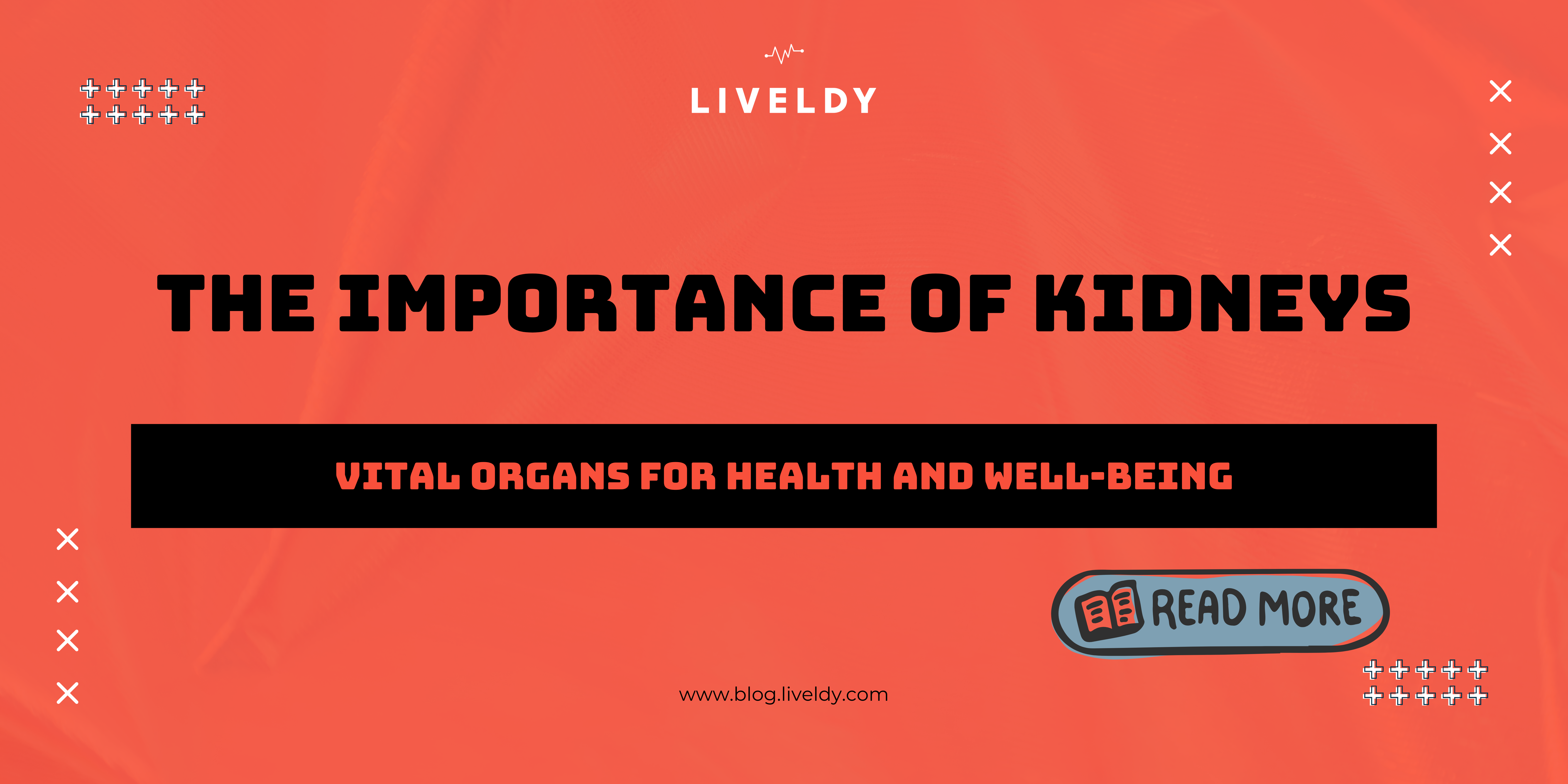The kidneys are two small, bean-shaped organs that play an indispensable role in maintaining our overall health and well-being. While they might not be as prominent as the heart or brain, the kidneys are unsung heroes in our bodies, responsible for a range of critical functions that are essential for life. In this article, we will explore the remarkable importance of these unassuming organs and why it is vital to care for them.
- Filtration and Waste Removal: One of the primary functions of the kidneys is to filter waste products and excess substances from the blood, ultimately forming urine. This process helps maintain a delicate balance of electrolytes, fluids, and various chemicals in the body. Waste products such as urea, creatinine, and excess salts are eliminated through urine, preventing harmful buildup in the bloodstream.
- Regulation of Blood Pressure: The kidneys play a pivotal role in regulating blood pressure. They do so by adjusting the volume of blood in the body and by releasing the enzyme renin, which constricts blood vessels and increases blood pressure when necessary. By helping to maintain optimal blood pressure, the kidneys protect the heart and vascular system from unnecessary strain.
- Acid-Base Balance: Maintaining the body’s pH balance is crucial for health. The kidneys help control the pH by excreting hydrogen ions and reabsorbing bicarbonate ions. This fine-tuning of acid-base balance ensures that the body functions within its optimal pH range, which is necessary for normal enzymatic activity and overall well-being.
- Electrolyte Regulation: The kidneys are responsible for regulating the levels of various electrolytes, such as sodium, potassium, calcium, and phosphate. An imbalance in these electrolytes can lead to serious health issues, including muscle cramps, cardiac arrhythmias, and bone disorders. The kidneys ensure that these electrolytes are maintained at the right levels for proper bodily function.
- Erythropoiesis Regulation: Erythropoiesis is the process by which the body produces red blood cells. The kidneys release erythropoietin, a hormone that stimulates the bone marrow to produce more red blood cells when oxygen levels are low. This function is crucial for ensuring that the body receives an adequate oxygen supply.
- Detoxification: In addition to filtering waste products from the blood, the kidneys also help eliminate toxins and drugs from the body. This detoxification process is essential for preventing the accumulation of harmful substances in the body, which can lead to serious health issues.
- Water and Fluid Balance: The kidneys regulate the body’s water and fluid balance by adjusting the amount of water reabsorbed or excreted in urine. This balance is crucial for maintaining proper blood pressure, hydration, and overall homeostasis.
- Hormone Regulation: Apart from erythropoietin, the kidneys play a role in regulating other hormones as well, such as calcitriol (active vitamin D) and prostaglandins. These hormones influence calcium absorption, blood vessel dilation, and inflammatory responses, respectively, all of which impact various bodily functions and health.
The importance of the kidneys cannot be overstated, and any dysfunction or damage to these vital organs can lead to a range of health problems. Kidney disease, if left untreated, can result in kidney failure, which necessitates dialysis or a kidney transplant to sustain life.
To keep your kidneys healthy and functioning optimally, it’s important to adopt a few simple lifestyle habits:
- Stay Hydrated: Drink an adequate amount of water each day to support proper kidney function and prevent kidney stones.
- Maintain a Balanced Diet: Consume a diet rich in fruits, vegetables, and whole grains while moderating your salt and protein intake. This helps reduce the risk of kidney-related issues.
- Manage Blood Pressure and Blood Sugar: High blood pressure and diabetes are leading causes of kidney disease, so keeping them under control is essential.
- Avoid Excessive Alcohol and Smoking: Both alcohol and smoking can harm kidney function, so it’s best to limit or avoid them altogether.
- Regular Exercise: Physical activity can help maintain a healthy weight, regulate blood pressure, and improve overall health.
- Get Regular Checkups: Visit your healthcare provider for routine checkups to monitor your kidney health and catch any potential issues early.
In conclusion, the kidneys are truly remarkable organs, quietly performing a multitude of vital functions that are essential for maintaining our health and well-being. By understanding and appreciating their importance and taking steps to care for them, we can ensure that these unsung heroes continue to support us in leading healthy and fulfilling lives.
Citations
Cleveland Clinic: Kidney Function – https://my.clevelandclinic.org/health/body/21824-kidneyEuropean Rare Kidney Disease Reference Network – https://www.erknet.org/patients/your-kidney-disease/kidney-function
Osmosis: The Role of the Kidney in Acid-Base Balance – https://www.osmosis.org/learn/The_role_of_the_kidney_in_acid-base_balance
Miami Kidney Institute: Kidney Functions – https://www.miamikidney.com/single-post/the-seven-kidney-functions
National Institute of Diabetes and Digestive and Kidney Diseases (NIDDK): Kidney Disease Prevention – https://www.niddk.nih.gov/health-information/kidney-disease/chronic-kidney-disease-ckd/prevention
University of Utah Health: Keeping Your Kidneys Healthy – https://healthcare.utah.edu/healthfeed/2024/03/keeping-your-kidneys-healthy-5-ways-prevent-kidney-disease
NIDDK: High Blood Pressure and Kidney Disease – https://www.niddk.nih.gov/health-information/kidney-disease/high-blood-pressure
Better Health Channel: Kidney Disease – https://www.betterhealth.vic.gov.au/health/conditionsandtreatments/kidney-diseaseRush University Medical Center: 6 Ways to Keep Your Kidneys Healthy – https://www.rush.edu/news/6-ways-keep-your-kidneys-healthy
National Kidney Foundation: 7 Golden Rules for Kidney Disease Prevention – https://www.kidney.org/7-golden-rules-kidney-disease-prevention

